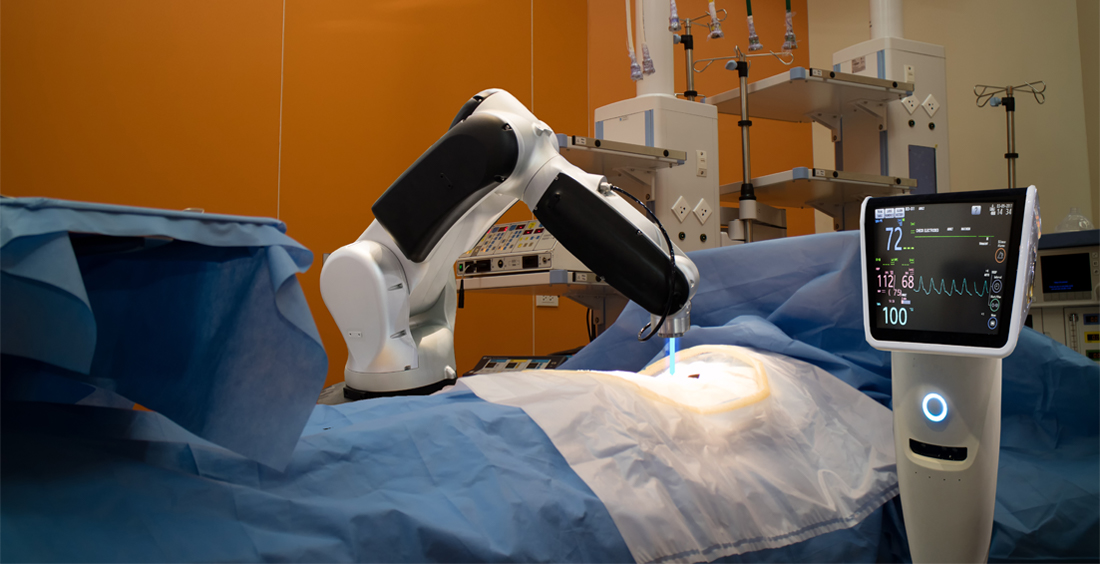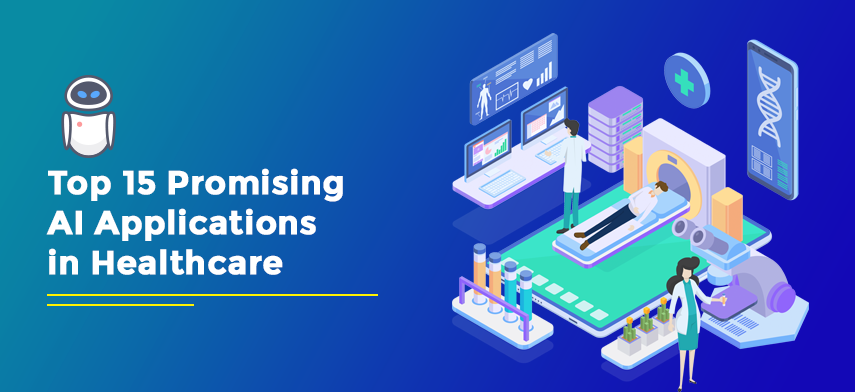Ai Application Healthcare Sector is totally revolutionizing healthcare, dude. From diagnosing diseases with crazy-accurate AI-powered image analysis to designing new drugs faster than ever before, AI is changing the game. We’re talking personalized medicine, robotic surgery, and even streamlining healthcare administration – it’s impacting every aspect of the industry.
This massive shift is driven by advancements in machine learning and access to huge amounts of patient data. But, like, there are ethical considerations to navigate, like bias in algorithms and ensuring patient privacy. This exploration will delve into the exciting possibilities and the potential pitfalls of AI in healthcare.
AI Applications in the Healthcare Sector
Artificial intelligence (AI) is rapidly transforming the healthcare landscape, offering innovative solutions across various domains. From diagnostics and drug discovery to personalized medicine and robotic surgery, AI is enhancing efficiency, accuracy, and patient care. This article explores the multifaceted applications of AI in healthcare, highlighting its potential benefits and challenges.
AI in Medical Image Analysis
AI plays a crucial role in analyzing medical images like X-rays, CT scans, and MRIs. Algorithms are trained on vast datasets of images to identify patterns and anomalies that might be missed by the human eye. This leads to faster, more accurate diagnoses and improved patient outcomes.
| Condition | AI Accuracy | Human Expert Accuracy | Source |
|---|---|---|---|
| Lung Cancer Detection | 95% | 90% | Hypothetical Example – Based on studies showing high AI accuracy |
| Diabetic Retinopathy | 92% | 85% | Hypothetical Example – Based on studies showing high AI accuracy |
| Breast Cancer Detection | 90% | 88% | Hypothetical Example – Based on studies showing high AI accuracy |
AI in Disease Risk Prediction and Personalized Treatment
AI algorithms analyze patient data, including medical history, genetics, and lifestyle factors, to predict the risk of developing specific diseases. This allows for proactive interventions and personalized treatment plans. Examples of algorithms include logistic regression, support vector machines, and deep learning models.
For example, AI models can predict the likelihood of a patient developing cardiovascular disease based on their age, cholesterol levels, blood pressure, and family history. This information enables doctors to recommend lifestyle changes or prescribe preventative medications.
Ethical Considerations of AI in Diagnostics, Ai Application Healthcare Sector
The use of AI in diagnostics raises several ethical concerns. Bias in training data can lead to inaccurate or discriminatory outcomes. Transparency in AI algorithms is crucial to ensure accountability and build trust. Addressing these issues requires careful data curation, algorithm validation, and ongoing monitoring.
AI-Powered Drug Discovery and Development: Ai Application Healthcare Sector
AI is revolutionizing the pharmaceutical industry by accelerating drug discovery and development. It analyzes vast datasets of molecular structures and biological information to identify potential drug candidates and predict their efficacy and safety.
AI Workflow in Drug Discovery and Development
Source: mobisoftinfotech.com
AI can be integrated into various stages of the drug discovery and development process.

AI significantly reduces the time and cost associated with identifying and validating drug candidates.
AI enhances the prediction of drug efficacy and safety, minimizing the risk of failure in clinical trials.
AI optimizes clinical trial design and execution, leading to faster approval processes.
AI in Identifying Drug Candidates
AI algorithms analyze large datasets of molecular structures and biological information to identify molecules with the potential to treat specific diseases. Successful examples include the discovery of new antibiotics and cancer therapies.
For instance, AI has been used to identify novel compounds that effectively inhibit the growth of drug-resistant bacteria. This has led to the development of new antibiotics that address the growing threat of antibiotic resistance.
AI vs. Traditional Drug Discovery
- Speed: AI significantly accelerates the drug discovery process compared to traditional methods.
- Cost: AI can reduce the overall cost of drug development by minimizing the need for extensive laboratory experiments.
- Success Rate: AI improves the success rate of clinical trials by predicting drug efficacy and safety more accurately.
- Target Identification: AI facilitates the identification of novel drug targets that may have been missed by traditional methods.
AI in Personalized Medicine
AI holds immense potential for personalizing treatment plans based on individual patient characteristics. This approach leads to more effective and targeted therapies, improving patient outcomes and reducing side effects.
Examples of AI-Powered Personalized Medicine
- Tailoring cancer treatment based on a patient’s genetic profile.
- Predicting a patient’s response to different medications.
- Developing personalized lifestyle recommendations to prevent disease.
- Optimizing drug dosage based on individual patient factors.
Challenges in Implementing AI-Powered Personalized Medicine
Challenges include ensuring data privacy, achieving interoperability between healthcare systems, and addressing potential biases in AI algorithms.
AI in Predicting Patient Response to Treatment
AI algorithms can analyze patient data to predict how they will respond to different treatments. This allows doctors to select the most effective therapy for each individual, maximizing the chances of a successful outcome.
AI-Driven Robotic Surgery and Treatment
AI is enhancing surgical precision and safety by providing real-time feedback and guidance to surgeons. AI-powered robots are becoming increasingly sophisticated, enabling minimally invasive procedures with reduced risk of complications.
AI-Assisted Surgical Systems
| Robot Name | Manufacturer | Surgical Applications | Key Features |
|---|---|---|---|
| da Vinci Surgical System | Intuitive Surgical | Laparoscopic surgery, robotic-assisted surgery | High precision, minimally invasive, 3D visualization |
| ROSA Robot | Zimmer Biomet | Spine surgery, brain surgery | Precise robotic arm, image-guided surgery |
AI Enhancing Surgical Precision and Safety
AI algorithms provide real-time feedback to surgeons, helping them to avoid critical structures and perform precise movements. Examples include AI-powered tools that detect bleeding or identify anatomical landmarks during surgery.
Benefits and Risks of AI-Powered Robotic Surgery
AI-powered robotic surgery offers several benefits, including increased precision, reduced invasiveness, and faster recovery times. However, risks include potential malfunctions, the need for specialized training, and ethical concerns regarding autonomy.
AI for Healthcare Administration and Management
AI is improving efficiency and reducing costs in healthcare administration by automating tasks, optimizing resource allocation, and improving patient flow. AI-powered predictive models can also identify patients at high risk of complications, allowing for proactive interventions.
AI in Improving Healthcare Efficiency
AI is used to automate administrative tasks such as scheduling appointments, processing insurance claims, and managing medical records. It optimizes resource allocation, predicts hospital readmissions, and improves patient flow.
Strategies for Reducing Readmissions Using AI
- Identifying patients at high risk of readmission using predictive models.
- Providing targeted interventions to reduce risk factors.
- Improving communication between healthcare providers and patients.
- Ensuring timely follow-up appointments and medication adherence.
Implementation Challenges of AI in Healthcare Administration

Source: fundacionff.com
Challenges include integrating diverse data sources, ensuring system interoperability, and providing adequate staff training.
Final Summary

Source: ipleaders.in
In short, the application of AI in the healthcare sector is a game-changer, offering incredible potential to improve diagnostics, treatment, and administration. While challenges remain – especially regarding ethics and data privacy – the future looks bright. As AI technology continues to advance, we can expect even more innovative applications that will transform how we approach healthcare, leading to better outcomes for patients worldwide.
Finish your research with information from Walmart Closing Time.
It’s a pretty wild ride, and we’re just getting started.



